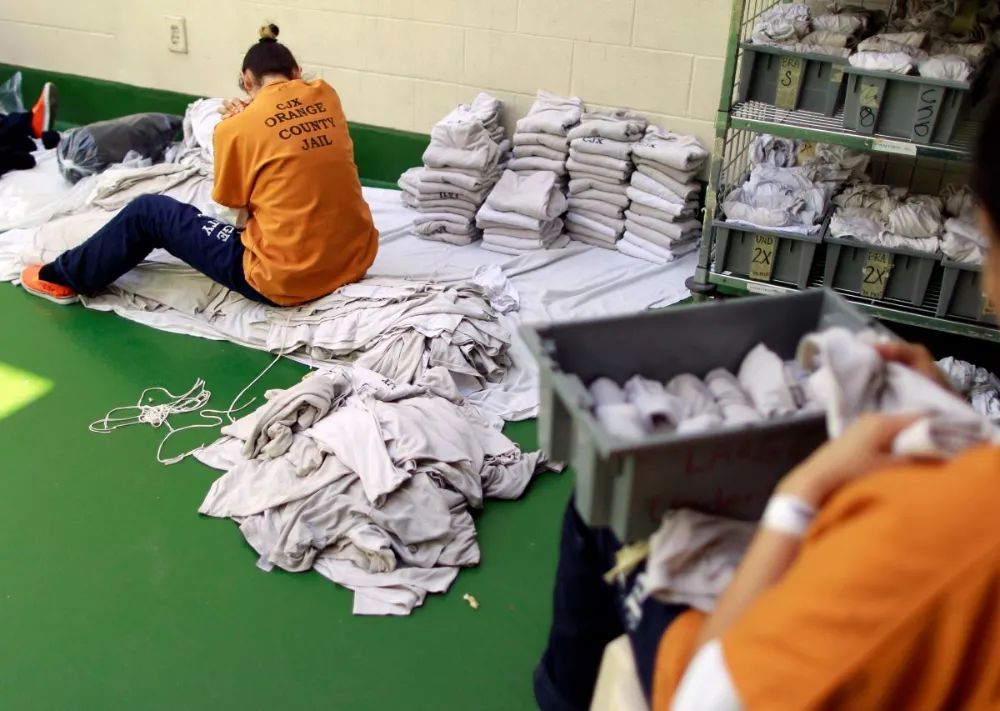Ending US Jail workers' Slavery Clause Could Net Billions'
Slavery as punishment for crimes is still allowed by 13th Amendment

The United States incarcerates more than 1.2 million people in state and federal prisons, and two out of three of these incarcerated people are also workers. In most instances, the jobs these nearly 800,000 incarcerated workers have look similar to those of millions of people working on the outside. But there are two crucial differences: Incarcerated workers are under the complete control of their employers, and they have been stripped of even the most minimal protections against labor exploitation and abuse.
From the moment they enter the prison gates, incarcerated people lose the right to refuse to work. This is because the 13th Amendment to the U.S. Constitution, which protects against slavery and involuntary servitude, specifically excludes those held in confinement due to a criminal conviction. The roots of modern prison labor can be found in the ratification of this exception clause at the end of the Civil War, which disproportionately encouraged the criminalization and effective re-enslavement of Black people during the Jim Crow era, with current-day impacts.
U.S. law also explicitly excludes incarcerated workers from the most universally recognized workplace protections. Incarcerated workers are not covered by minimum wage laws or overtime protection, are not afforded the right to unionize, and are denied workplace safety guarantees.
Today, more than 76 percent of incarcerated workers surveyed by the Bureau of Justice Statistics say that they are required to work or face additional punishment such as solitary confinement, denial of opportunities to reduce their sentence, and loss of family visitation. They have no right to choose what type of work they do and are subject to arbitrary, discriminatory, and punitive decisions by the prison administrators who select their work assignments.
In addition to the moral argument to end the prison labor slavery exception, a recent report from consultants Edgeworth Economics and released by the non-profit organization Worth Rises makes an economic case. The report, The Impact of Ending Slavery and Involuntary Servitude as Criminal Punishment and Paying Incarcerated Workers Fair Wages, argues that the fiscal benefits associated with ending the prison labor exception, like increased wages and support to families and subtracting costs to taxpayers, would net between $18.3 billion and $20.3 billion annually.
"The benefits of paying fair wages to people far outstrips the costs," said Bianca Tylek, executive director of Worth Rises. "There is every reason for policymakers to want to engage in this."
The study said the increased wage costs would be more than offset by allowing prisoners to better support themselves and their families, and boost their earnings after release. Crime victims would also benefit from more payment of restitution.
"When we talk to people who are incarcerated or formerly incarcerated, we ask them what it would mean to have the protection from slavery," Tylek said. "I would say nine out of ten times, the response I get is 'it would mean that people would see me as human.'"
You can read and download the full report "The Impact of Ending Slavery and Involuntary Servitude as Criminal Punishment and Paying Incarcerated Workers Fair Wages." Worth Rises is a non-profit advocacy organization dedicated to dismantling the prison industry and ending the exploitation of those it touches










